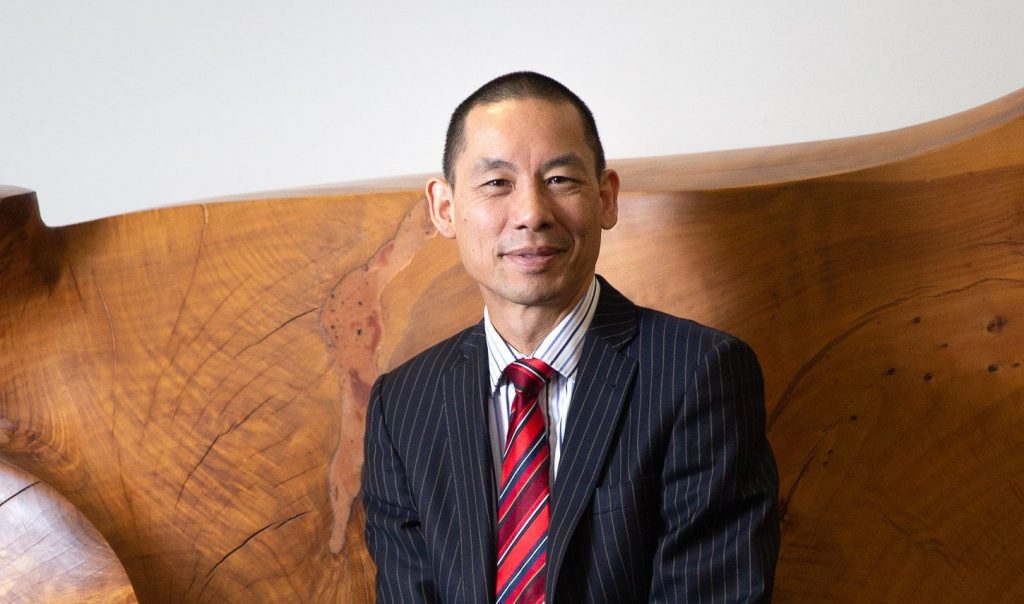- Near-term climate predictions for New Zealand
RELATED RESEARCH
Tim Ng

Tim Ng works in the leadership team of Treasury New Zealand, making sure that Treasury’s advice on raising living standards is underpinned by sound evidence. He’s also been a treasured member of our Representative User Group since its inception.
“Being involved in the Deep South Challenge has definitely influenced my thinking,” Tim says. “I’m a big believer in multidisciplinarity, and the Challenge is a great example of its strengths. Understanding the science better, what it tells us and what it can’t yet, and the interface with economic decision-making, has been fascinating.”
Climate adaptation is very much a live issue in Treasury’s thinking, and several Deep South Challenge projects have presented findings directly to Treasury. Tim explains, “We’re charged with anticipating and advising on the long-term economic and fiscal outlook, so climate change and its impacts is one of the megatrends most relevant to our work.”
Treasury has also recently introduced a new well-being framework. There’s tangible common ground between the framework and the approaches being taken in some of the Challenge’s social science and kaupapa Māori research. Tim talks about how Treasury’s work, as well as his own, is values-driven.
My values centre around our common humanity, the power of evidence and science to improve human lives, and the desire to make the world a better place. They come from everything our wonderful country provides us and which we are moved to protect and build on for future generations.
In 2018, Tim addressed a young crowd of budding economists. He said, “The story [about economic growth] needs enrichment so that it better reflects the context and complexity of real life.” Would Tim describe himself as a storyteller, as well as an economist?
“Human beings,” he says, “respond at a very basic level to stories. Many economic phenomena can be understood in terms of a beginning and an end, tension and resolution, even heroes and villains. Even better if the story involves the audience in the action. Fortunately, economics is a social and behavioural science, so it isn’t hard to bring human stories into the economics.”
The Challenge also has several research projects that incorporate economic modelling and physical climate modelling. And this question – of dialogue and codevelopment on research – is key to the mission-led science underway in the National Science Challenges (NSCs). Tim agrees. “I think there should not only be more dialogue – drawing on the excellent practices developed through the NSCs, for example – but also collaboration.” Tim continues, “Each of us brings a particular framing to the evidence, drawing on our expertise and experience, but that unavoidably implies that we each have blind spots. The stories we tend to tell from the perspective of any particular discipline can be oversimplified and risk reaching only a narrow audience. Natural scientists, economists, sociologists, political scientists, legal theorists and others are all necessary to effect the kind of large-scale social and economic transformation we need to adapt to and limit climate change.”
With the power of an omniscient narrator, would Tim see the Challenge do anything differently? “No, not necessarily. The Challenge is doing great stuff in reaching out to and involving key stakeholders. I would just urge us all to continue asking hard questions, pointing out inconvenient truths, and confronting the many elephants already in the room.”
Tim suggests that people need to accept that climate change, and the way it will impact our economy, is going to be massive. “It’s going to hurt, both in the pocket and in just about every aspect of life as we know it. But there are also possibilities and opportunities. People need to be curious about that, because curiosity leads to innovation, action and change.”